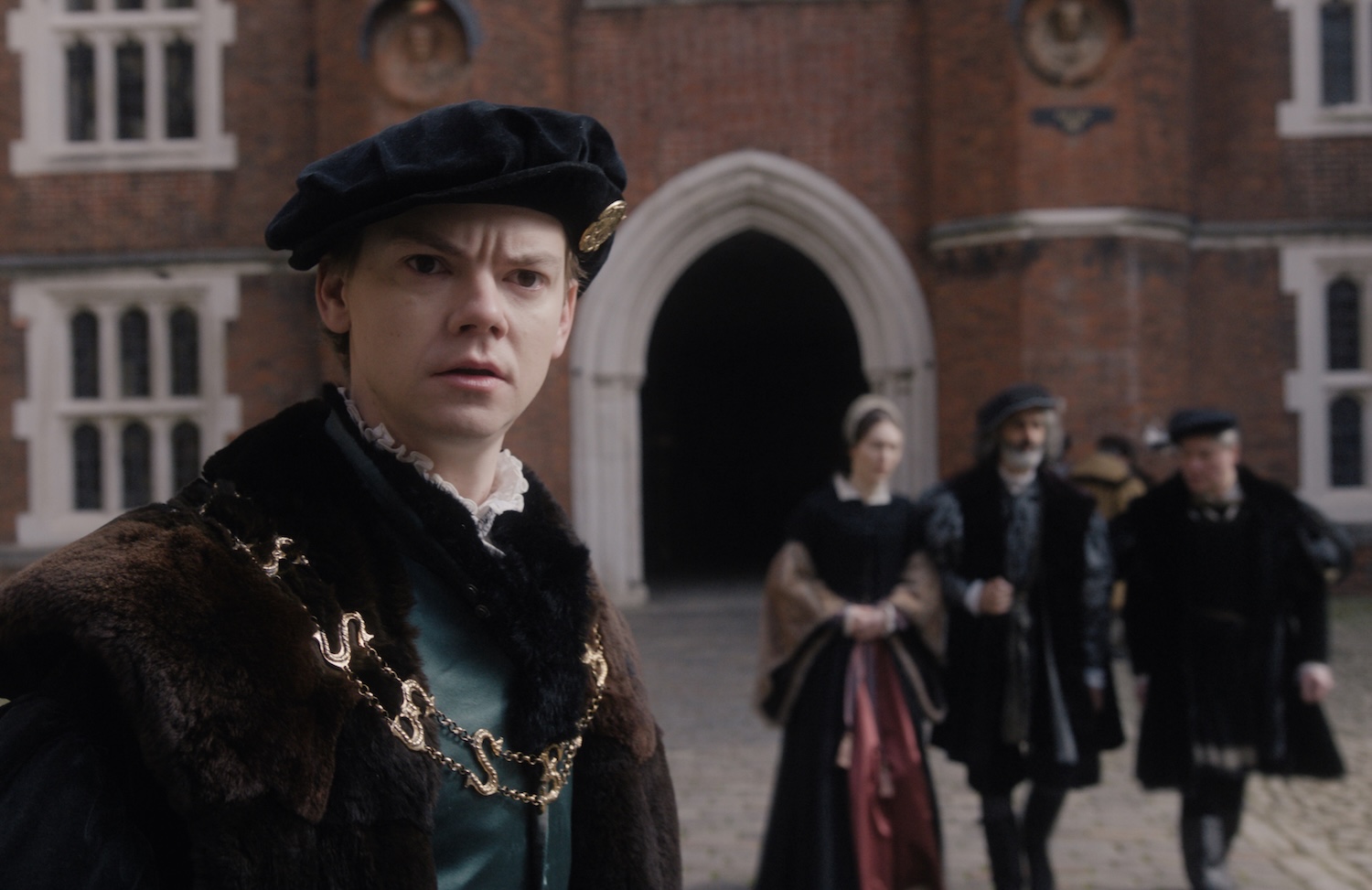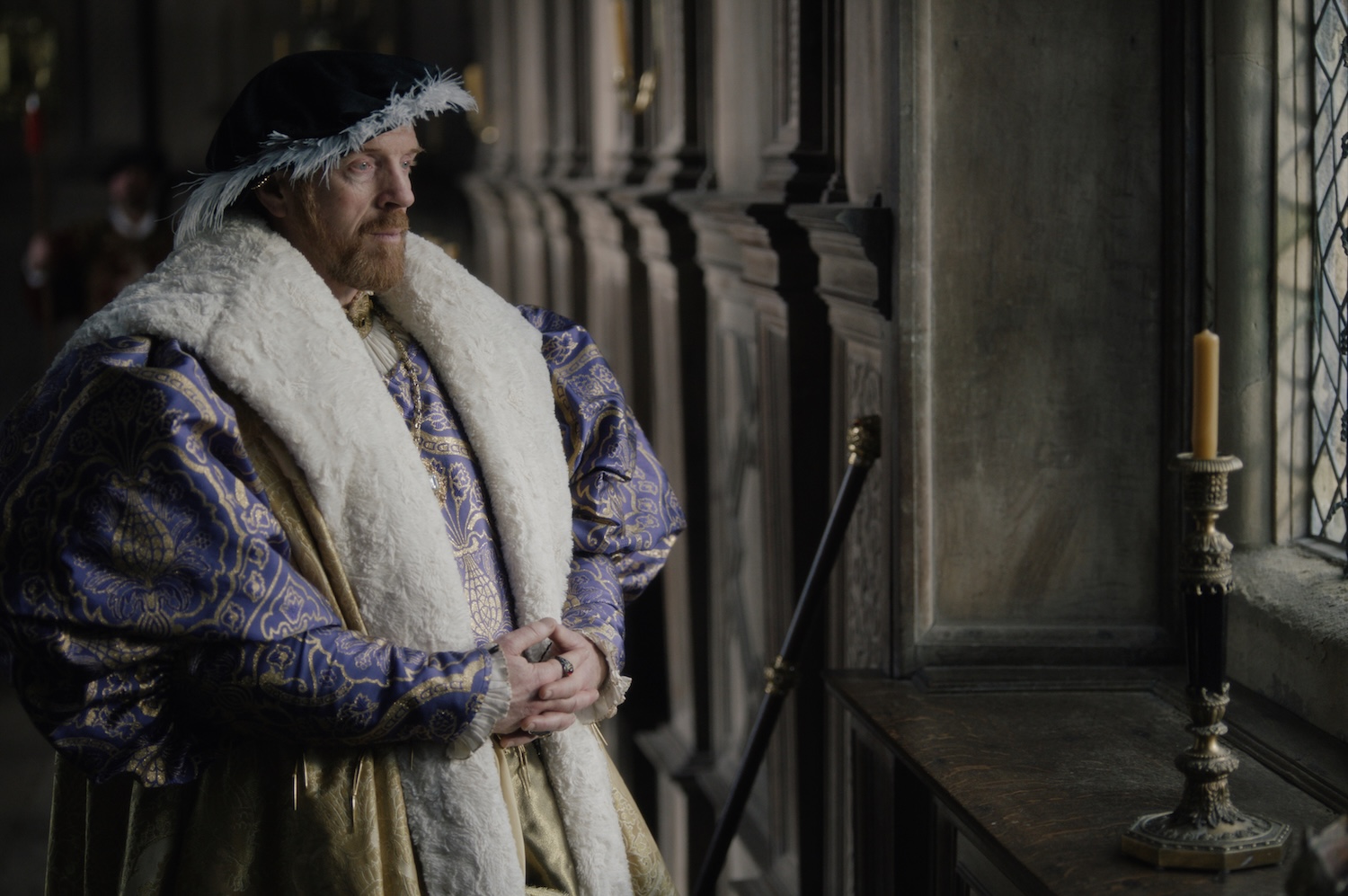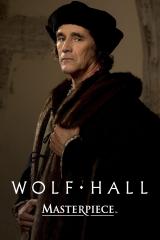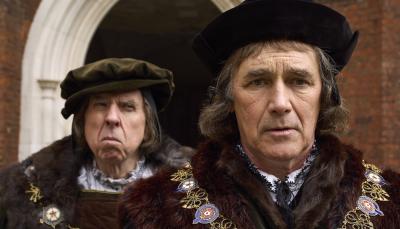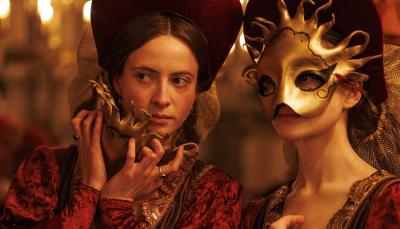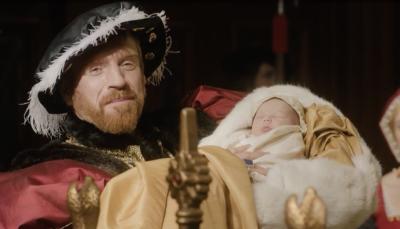The 'Wolf Hall' Series Finale Grants Cromwell Grace
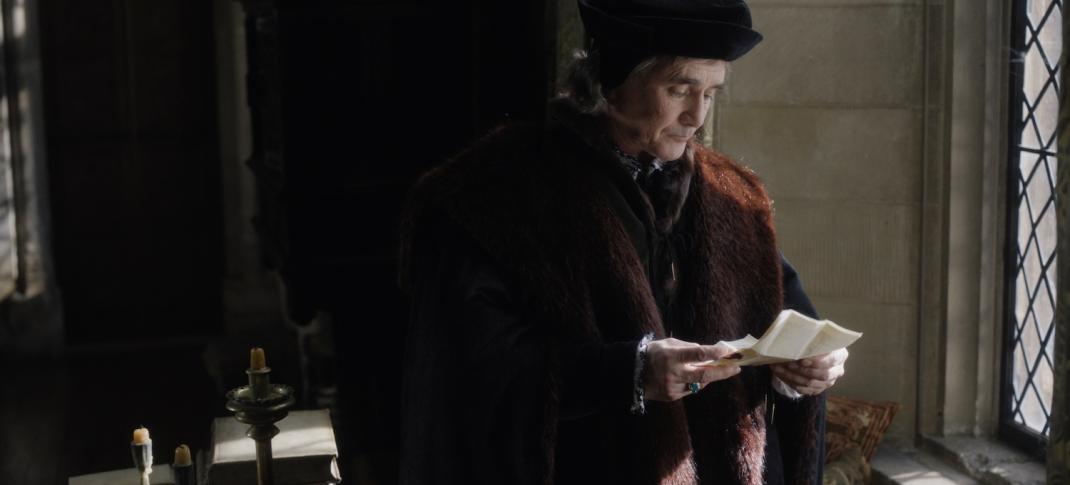
Mark Rylance in "Wolf Hall: The Mirror and the Light"
(Photo: Masterpiece)
It seems safe to say this plainly: Wolf Hall is a singular television franchise, and the gold standard of virtually everything that prestige television can be and do, it is a tale that is richly acted, thoughtfully written, and deftly structured in ways that make sixteenth-century political drama feel as necessary and urgent as anything happening today. Wolf Hall: The Mirror & the Light is both a tragedy and a triumph, a conclusion that depicts Thomas Cromwell at his highest and lowest points, all while somehow managing to find the man within his legend.
Historically speaking, Cromwell's inner life is essentially a mystery to us. So it's easy to believe he might have resembled this frustrating, fascinating man, who changed England forever and lost himself in the process. It's true that Cromwell is not an especially good person and may well have deserved the fate he meets here — he himself would likely tell you that much — but it's somehow still difficult not to mourn his loss. Or to wonder what he might have done had he lived just a little bit longer.
It's a bit ironic that last week's penultimate episode was titled "Mirror" when so much of this finale is about mirroring and reflecting back the past. From the hour's opening moments, in which Cromwell takes the same journey through the Traitor's Gate that Anne Boleyn once did, "Light" is an hour full of echoes and ghosts, complete with callbacks both visual and thematic. It is, in many ways, Cromwell's farewell: to his life, to his legacy, to the mistakes he's leaving behind. After all, we know from the moment of his arrest that once he walks into the Tower of London, he's unlikely ever to leave it, yet he goes down as the hustler he's always been, fighting for one more day as long as possible.
Cromwell's interrogation is riveting stuff. Sitting across the table from his worst enemies (Norfolk, Gardiner) and former friends (Wriothsley, Riche), his verbal jousts are deft and biting, the very definition of must-see television (in the nerdiest possible way). The nearly twenty-minute sequence, in which he utterly decimates the questions and logic of the men sent to condemn him, is fantastic from start to finish. (It has never been more apparent that with Thomas More dead, this man is England's most talented lawyer.)
This is the first time in a very long while we've gotten the chance to witness Cromwell unleashed in this way, free from the groveling need to make himself smaller in the face of Henry's power. There are moments, as he casually brushes off the most ludicrous of the accusations against him and offers placid explanations for his legitimate sins, that you can't help but hope he might be able to pull a miracle off and save his own life.
That Cromwell is aware his efforts are almost certainly in vain paints even his brief moments of success with sharp, frustrating edges, and allows the emotion of the moment to bleed through in unexpected ways. (Every moment Mark Rylance and Thomas Brodie Sangster share is so pitch perfect it's almost painful. Apparently, when Rafe gets teary, I get teary.)
Through Rafe, the show also paints a stark contrast between Cromwell and Henry, who is predictably loathsome and self-centered as he presides over what is essentially his former friend's murder. As the king forces a clearly grieving servant to repeatedly read his master's letter begging for his life, just so he can hear the desperate pleas and obsequious lines about Cromwell wanting Henry to live "ever young" over again, he's rarely been more openly repulsive.
Mercifully, the show keeps the bulk of Henry's courtship of Katherine Howard off-screen, if only because she is a teenager at this point and he is twice her age. But she's (unsurprisingly) headed for a grisly end of her own, and Henry himself will be dead in less than a decade. Maybe the lesson here is that no one in a story like this gets a happy ending.
Cromwell's real-life execution was reportedly quite horrific. He was indeed sentenced to death without a trial — can't give the greatest lawyer in England a chance to acquit himself in front of a jury! — after being accused of treason and heresy. It's also likely true that his death was to some degree a bad one. Unlike Anne, who was granted a French swordsman at her death, Cromwell's ostensible "Henry cared about this person once" sympathy upgrade only got him so far as an axe (His status as a commoner meant he should have been hanged, and then drawn and quartered thereafter.)
Accounts describe the scene of his death as particularly gruesome, with a headsman who was apocryphally speculated to either be especially unskilled at his task or drunk from a previous night of carousing. It is reported that it took several swings of the axe to sever Cromwell's head from his body. It was later displayed on a pike atop London Bridge before he was buried in the Tower's Chapel of St. Peter ad Vincula alongside (yes, really) his oftentimes enemies Thomas More and Anne Boleyn.
The Mirror & the Light handles Cromwell's death more gracefully, using it to return, once more, to the series' emotional core rather than focus on the grisly truth of what most likely happened. Here, Cromwell's last speech is not a desperate appeal to a powerful man who has turned his back on him. (That plea would have fallen on deaf ears anyway, given that the real Henry was, in fact, busy marrying his fifth wife at the precise moment Cromwell died.)
Instead, it is an apology to the one who loved him best, and whose loss shaped the bulk of his life. That this Cromwell is speaking solely to a Wolsey that only he can see is genuinely moving, as is the show's decision to imagine his last moments as ones of peace, as bees buzz in the sunshine of Launde Abbey's gardens. We never see the ax fall, the blood splatter, or the horror reflected on the crowd's faces at whatever happens next. Is it a better ending than the historical Cromwell deserved? Maybe, particularly given the pivotal role he played in orchestrating Anne's death. Is it one that it's still a relief to say that this particular fictional version got? Absolutely.
Both Wolf Hall and Wolf Hall: The Mirror and the Light are now streaming with PBS Passport on the PBS app and via the PBS Masterpiece Prime Video Channel

